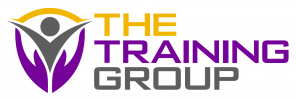Theories, principles and models of reflection and evaluation
As a trainee teacher, you’ll find that reflective practice is a crucial element of your professional development. Reflective practice is a process that involves critically evaluating your own performance and taking necessary steps to improve it. In this article, we’ll discuss the key aspects of reflective practice and explore some of the major theories and models that underpin it.
Reflective practice is the foundation of professional development. Through reflective practice, you can identify areas for improvement and find ways to enhance your teaching skills. To engage in reflective practice, you need to evaluate your performance and reflect on your experiences in the classroom. This process involves reviewing your own work, considering feedback from peers and students, and identifying areas where you can improve.
Self-evaluation is an essential component of reflective practice. It is the process of evaluating your own performance and identifying areas for improvement. Self-evaluation helps you to identify your strengths and weaknesses, as well as any gaps in your knowledge or skills. It allows you to set targets for your own professional development and to track your progress towards those targets.
Reflecting on your own practice can help you to identify areas where you could be more effective. For example, you might find that some of your students are struggling to engage with the material, or that certain teaching methods are not working as well as you’d like. Through reflection, you can identify the root causes of these issues and take steps to address them.
One of the key models that underpins reflective practice is the Kolb cycle. This cycle involves four stages: concrete experience, reflective observation, abstract conceptualization, and active experimentation. According to Kolb, learning is most effective when you engage in all four of these stages. By reflecting on your own experiences in the classroom, you can identify areas where you can apply the Kolb cycle and enhance your teaching practice.
Schön’s reflective practice model is another popular approach to reflective practice. Schön argued that reflection is a key element of professional development, and that reflective practice involves two types of reflection: reflection-in-action and reflection-on-action. Reflection-in-action occurs in the moment, as you are teaching, while reflection-on-action occurs after the event, as you reflect on your performance.
Griffiths and Tann’s model of reflective practice is based on the idea that reflection is a cyclical process. This model involves four stages: describe, evaluate, theorize, and apply. Through this model, you can identify issues in your teaching practice, develop theories about the causes of those issues, and take action to address them.
Brookfield’s model of critical reflection is another popular approach to reflective practice. Brookfield argued that critical reflection involves challenging your own assumptions and beliefs, and considering alternative perspectives. Through critical reflection, you can identify areas where you might be limiting yourself, and find ways to expand your teaching practice.
In conclusion, reflective practice is a crucial element of professional development for trainee teachers. By evaluating your own practice and reflecting on your experiences in the classroom, you can identify areas for improvement and take steps to enhance your teaching skills. There are many different models and theories that underpin reflective practice, including the Kolb cycle, Schön’s reflective practice model, Griffiths and Tann’s model of reflective practice, and Brookfield’s model of critical reflection. By engaging with these models and theories, you can develop a deeper understanding of reflective practice and become a more effective teacher.
Further Reading:
Academic articles:
-
Schön, D. A. (1987). Educating the reflective practitioner: Toward a new design for teaching and learning in the professions. Jossey-Bass. Link: https://eric.ed.gov/?id=ED281818
-
Griffiths, D., & Tann, S. (2018). Reflection in teacher education: A literature review. Professional Development in Education, 44(2), 197-214. Link: https://www.tandfonline.com/doi/full/10.1080/19415257.2017.1416962
-
Brookfield, S. (1995). Becoming a critically reflective teacher. Jossey-Bass. Link: https://www.wiley.com/en-us/Becoming+a+Critically+Reflective+Teacher-p-9781555425950
Online articles:
-
The University of Edinburgh. (n.d.). Reflective practice. The Institute for Academic Development. Link: https://www.ed.ac.uk/institute-academic-development/about-us/our-team/academic-development/reflective-practice
-
Harvard University. (n.d.). Reflective practice. Derek Bok Center for Teaching and Learning. Link: https://bokcenter.harvard.edu/reflective-practice
-
Johns Hopkins University. (2020). Reflective teaching: Exploring our own classroom practice. Center for Educational Resources. Link: https://cer.jhu.edu/reflective-teaching
Videos:
-
Schön, D. A. (2012). Reflective practice: How professionals think in action. The RSA. Link: https://www.youtube.com/watch?v=6Vy-qT6T8-E
-
The Teaching Channel. (2013). Reflective teaching: Explore your own classroom practice. Link: https://www.youtube.com/watch?v=fxjObPd_zO4
-
Griffiths, D. (2020). Reflective practice: The value of reflection in teacher education. The Learning Scientists. Link: https://www.youtube.com/watch?v=tH1waVf3G3M



